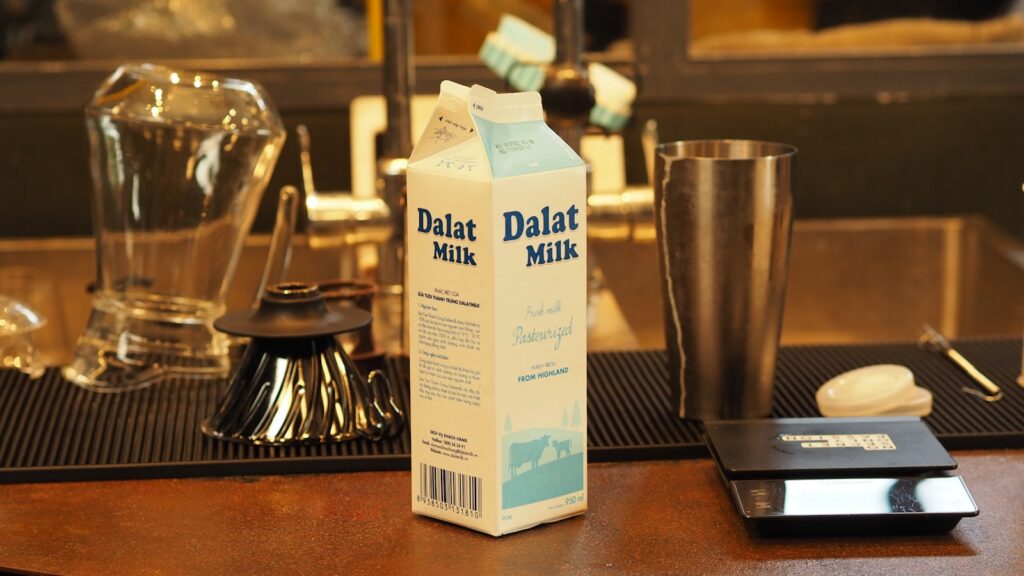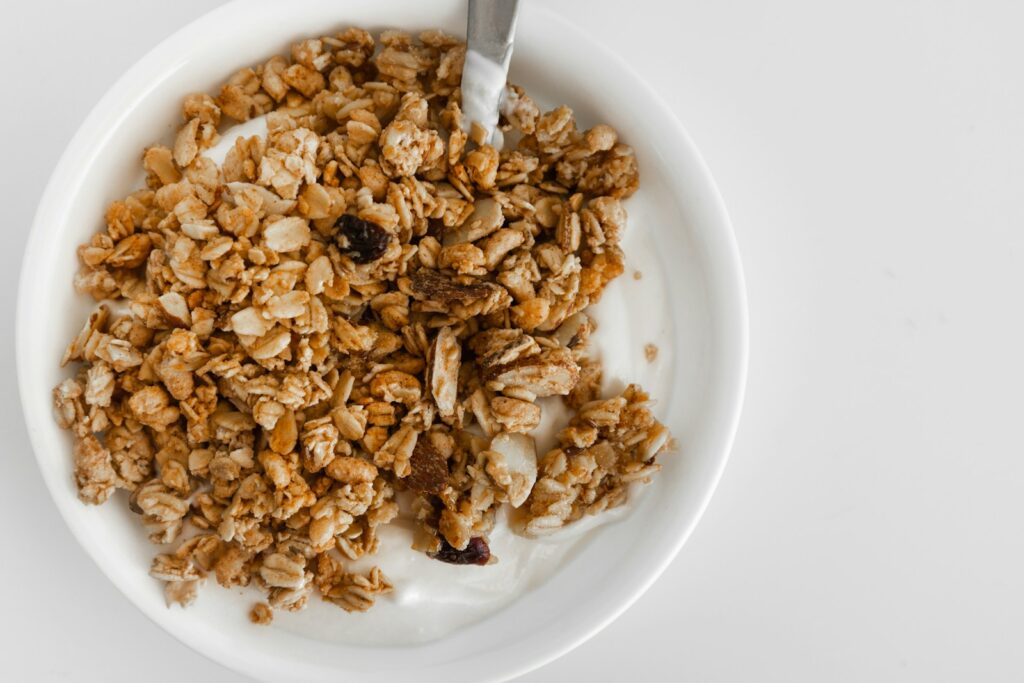
The vital connection between what we eat and how we sleep is a cornerstone of overall well-being, yet its profound impact is often overlooked in our busy lives. While a balanced diet is celebrated for its role in maintaining physical health and preventing chronic diseases, its influence on nightly rest is equally, if not more, critical. A truly good night’s sleep isn’t merely about feeling refreshed the next day; it’s a fundamental process essential for robust brain function, a strong immune system, and proper growth and development, serving as one of the primary pillars our bodies absolutely need to maintain health and vitality.
Despite sleep’s undeniable importance, a significant portion of the population struggles with getting adequate rest on a regular basis. In fact, the statistics are quite startling: according to Sleephealthorg, an astounding 50-70 million Americans don’t achieve the recommended 7-9 hours of sleep per night. This pervasive issue of insufficient sleep can lead to numerous health complications, ranging from impaired cognitive function and mood disturbances to increased risks of heart disease and diabetes. It underscores the urgency of addressing all factors that disrupt our natural sleep cycles, especially those within our direct control, like diet.
This article aims to shed comprehensive light on specific dinner choices and food characteristics that are unequivocally detrimental to your sleep quality, drawing insights directly from experienced dietitians and sleep disorder therapists. Before you consider reaching for that late-night snack or meticulously planning your evening meal, understanding precisely which foods can transform your peaceful slumber into a restless, fragmented night is paramount. We’ll delve into the top factors to steer clear of, meticulously categorized by their physiological impact on your body’s intricate ability to fall asleep, stay asleep, and experience truly restorative rest.
1. **Sugary Breakfast Cereals**It might seem like a quick, effortless dinner solution, or perhaps a comforting throwback to childhood, but sugary breakfast cereals are, unequivocally, among the worst possible choices for your evening meal if a truly good night’s sleep is your ultimate goal. These seemingly innocent bowls of grain are, in reality, often packed with ingredients that actively work against your body’s natural and delicate mechanisms for preparing for and achieving sound sleep. The sheer convenience factor often overshadows the stark nutritional reality, leading many individuals to inadvertently underestimate their profound detrimental effects on nocturnal rest.
The primary culprit embedded within many popular cereals is their alarmingly high content of both added sugars and processed starches. As Ali Chappell, PhD, MS, RD, Founder of Lilli Health, incisively explains, “Sugary cereals are largely processed starch and sugar, which cause a rapid spike in blood sugar and insulin levels.” This swift, dramatic elevation in blood glucose and the subsequent surge in insulin can effectively send your body into a state of metabolic overdrive, creating an internal environment that is fundamentally unsuited for rest. Rather than gently winding down, your entire system becomes energetically engaged in managing these sharp, disruptive physiological changes.
Crucially, the impact of these volatile blood sugar fluctuations extends directly to your body’s sleep-regulating hormones. Dr. Chappell further clarifies that “These higher insulin levels can disrupt melatonin production and make it harder to fall asleep and stay asleep.” Melatonin, widely recognized as the body’s primary “sleep hormone,” plays an indispensable role in signaling to your body that it’s the appropriate time to prepare for and initiate sleep. Interfering with its natural, synchronized production through ill-timed sugary food choices essentially jams your body’s intricate sleep signals, leaving you prone to restless tossing and turning.
Furthermore, it’s vital to recognize that sugary cereals fall squarely into the increasingly scrutinized category of ultra-processed foods, a classification now consistently linked to adverse sleep outcomes. As Violeta Morris, MS, RDN, from Columbus, OH, The Concierge Dietitian, astutely points out, “Numerous studies, including one published in the Journal of the Academy of Nutrition and Dietetics, involving 38,570 adults, have shown a significant link between the consumption of ultra-processed foods and chronic insomnia, as well as other sleep-related issues.” This robust research points to a clear and measurable relationship, suggesting that regularly consuming these types of foods can actively contribute to persistent, debilitating sleep difficulties.
The widespread, almost normalized habit of consuming cereal before bed starkly underscores the true magnitude of this often-overlooked problem. Morris highlights this by noting that “According to the Sleep Foundation, 28% of Americans choose cereal as their bedtime snack, highlighting the strong association between ultra-processed food intake and sleep disturbances.” This statistic serves as a powerful, sobering reminder that what often appears to be a simple, harmless meal can, in fact, be a significant and insidious hidden factor contributing to the nation’s pervasive sleep deficit. Making a conscious decision to choose whole, minimally processed alternatives for dinner is a foundational and profoundly impactful step towards dramatically improving your sleep quality.
Read more about: Unlock Affordable Wellness: Your Comprehensive Guide to Healthy Home Cooking Without Draining Your Wallet

2. **Ultra-Processed Snack Foods for Dinner**While sugary cereals represent a prominent and problematic example, the broader category of ultra-processed foods, particularly those frequently consumed as quick dinner solutions or casual late-night snacks, poses a pervasive and insidious threat to truly restful sleep. These foods are meticulously engineered for maximum convenience, extended shelf life, and irresistible palatability, often achieved at the severe expense of nutritional integrity and, critically, their harmonious impact on our complex physiological systems, including those governing sleep. It’s a wide-ranging spectrum that extends far beyond just breakfast items, encompassing a vast array of common packaged meals, frozen dinners, and convenience snacks.
The evidence linking the regular consumption of ultra-processed foods to significant sleep problems is both robust and continually growing, making it an area of increasing concern for health professionals. Violeta Morris, MS, RDN, authoritatively highlights this profound connection, stating that “Numerous studies, including one published in the Journal of the Academy of Nutrition and Dietetics, involving 38,570 adults, have shown a significant link between the consumption of ultra-processed foods and chronic insomnia, as well as other sleep-related issues.” This extensive research points to a clear, consistent, and measurable relationship, strongly suggesting that regularly incorporating these types of foods into your diet can actively contribute to persistent and debilitating sleep difficulties, profoundly impacting your overall well-being.
The defining characteristics of ultra-processed foods typically include the presence of ingredients not commonly found in a home kitchen, unhealthily high levels of added sugars, unhealthy fats (often trans fats or highly refined oils), and an array of artificial additives, colors, and preservatives. These numerous components, whether acting individually or in synergistic combination, can trigger inflammatory responses throughout the body, disrupt the delicate balance of gut microbiota, and generally create a state of physiological imbalance and stress that makes falling and staying asleep an arduous challenge. The body’s precious energy is diverted towards processing these complex, often nutrient-poor substances, rather than gracefully preparing for restorative rest.
The unfortunate and pervasive reality is that many individuals instinctively gravitate towards these highly convenient, ready-to-eat options when time is scarce, or energy for preparing a wholesome meal is depleted after a long day. However, as the compelling statistics regarding bedtime cereal consumption vividly illustrate, a significant portion of the population unwittingly engages in dietary habits that fundamentally undermine their crucial sleep health. Morris emphatically emphasizes the “strong association between ultra-processed food intake and sleep disturbances,” an absolutely critical insight for anyone earnestly looking to significantly improve their nighttime routine and quality of rest.
For those genuinely seeking deeper, more restorative, and consistently healthy sleep, a conscious and dedicated effort to rigorously minimize ultra-processed foods at dinner, and ideally throughout the entire day, is an absolutely essential strategy. Opting instead for whole, minimally processed ingredients – fresh fruits, vegetables, lean proteins, and whole grains – can profoundly help the body maintain its natural, harmonious rhythms, significantly reduce systemic physiological stress, and facilitate a smoother, more natural transition into a healthy, consistent sleep cycle. Making these informed and deliberate choices about your dinner foods can dramatically impact both the precious quality and vital duration of your nightly rest.
Read more about: Smart Swaps for a Healthier You: 11 Ingredient Changes That Truly Transform Your Plate

3. **Dishes High in Added Sugars**Moving beyond specific processed food categories, a broader and equally concerning issue for sound sleep is any dinner dish that is excessively high in added sugars. While the widespread dangers of sugar are extensively discussed in relation to weight gain, metabolic disorders, and chronic diseases, its direct and often immediate impact on our fundamental ability to achieve restful sleep is frequently and unfortunately overlooked. It’s not solely about obvious sugary desserts; a surprising number of seemingly innocuous savory dishes, sauces, condiments, and even certain ‘healthy’ packaged meals can harbor significant, sleep-disrupting amounts of hidden sugars.
The primary and most direct mechanism by which these sugary foods interfere with the delicate process of sleep is through their immediate and often dramatic effect on blood glucose levels. As noted by Violeta Morris, MS, RDN, in her discussion of sugary cereals, “Many cereals found on store shelves are high in added sugars, which can cause a spike in blood glucose levels, potentially disrupting sleep.” This rapid and substantial rise in blood sugar immediately signals to the body an urgent need for swift energy regulation, thereby triggering a cascade of physiological responses that are inherently counterproductive to the process of settling down for sleep. Instead of preparing for a restful state, your system is mobilized for active metabolic work.
When blood sugar experiences such a sharp spike after a high-sugar dinner, the pancreas responds by releasing a significant surge of insulin to rapidly bring glucose levels back down to a normal range. This abrupt and pronounced fluctuation, as Ali Chappell, PhD, MS, RD, explains within the context of sugary cereals, specifically results in a “rapid spike in blood sugar and insulin levels.” While insulin is an absolutely vital hormone for cellular nutrient uptake and energy regulation, these unnaturally high and quickly fluctuating levels can have pervasive systemic effects that profoundly disturb the delicate hormonal balance and internal serenity required for both initiating and maintaining continuous sleep throughout the night.
The subsequent and often equally dramatic drop in blood sugar, sometimes colloquially referred to as a “sugar crash,” can also be incredibly disruptive to sleep. As the body frantically attempts to re-stabilize its glucose levels, it might release alerting stress hormones such as adrenaline and cortisol. These hormones are inherently designed to keep you awake, alert, and ready for action, directly opposing the calming signals needed for sleep. This entire physiological rollercoaster, triggered by excessive sugar intake at dinner, effectively prevents the body from entering the relaxed, parasympathetic state necessary for deep sleep, making it significantly harder to drift off and remain asleep.
Therefore, a meticulous examination of the sugar content in your dinner choices is an absolutely practical and indispensable step towards achieving consistently better sleep. This vigilance should extend beyond merely obvious sweets to include many seemingly wholesome options like certain flavored yogurts, commercially prepared salad dressings, barbecue sauces, and even some ‘healthy’ pre-packaged meals, which can contain surprising amounts of added sugar. Opting for dinners that prioritize whole, minimally processed, and unsweetened ingredients can help maintain stable blood sugar levels, fostering a far more serene and balanced internal environment that is inherently conducive to deep, undisturbed sleep.
Read more about: Unlock Affordable Wellness: Your Comprehensive Guide to Healthy Home Cooking Without Draining Your Wallet

4. **Meals Featuring Refined Starches**In close physiological kinship with added sugars, meals heavily reliant on refined starches also pose a significant and often underestimated challenge to achieving consistently high-quality sleep. Refined starches are carbohydrates that have undergone industrial processing to remove their outer bran and germ layers, along with the valuable fiber, essential vitamins, and crucial minerals they contain, leaving behind an easily digestible form of glucose. Common and pervasive examples include white bread, most types of white pasta, white rice, and a vast array of processed baked goods. While these foods might offer a fleeting and rapid burst of energy, this comes at a steep cost to your evening tranquility and your body’s ability to wind down naturally.
The core issue with refined starches, particularly when consumed at dinner, is their rapid and efficient conversion into glucose within the body. This metabolic process is remarkably similar to how simple added sugars are handled, and thus produces a similar disruptive effect. As Ali Chappell, PhD, MS, RD, so clearly highlights, “Sugary cereals are largely processed starch and sugar, which cause a rapid spike in blood sugar and insulin levels.” This swift and dramatic increase in blood sugar is precisely the physiological event we absolutely want to avoid before bedtime, as it emphatically signals a state of wakefulness, metabolic activity, and alertness rather than restful repose.
The subsequent surge of insulin, which the body releases to manage these suddenly elevated blood sugar levels, has a direct, profound, and profoundly detrimental effect on the intricate architecture of your sleep cycle. Dr. Chappell clearly states that “These higher insulin levels can disrupt melatonin production and make it harder to fall asleep and stay asleep.” Melatonin, our body’s supremely important natural sleep aid, relies on a remarkably stable and balanced physiological environment to be produced and released effectively and at the correct times. When insulin levels are erratic and high due to processed starch intake, this crucial hormonal signaling is significantly compromised, hindering your ability to initiate and maintain sleep.
Consuming meals that are rich in refined starches essentially primes your body for intense metabolic activity at precisely a time when it should be gracefully transitioning into a state of rest, repair, and regeneration. Instead of a gentle and natural descent into slumber, your entire system becomes energetically engaged in processing a heavy glucose load, leading to potential awakenings, fragmented sleep, and a feeling of not being truly rested. The immediate energy provided by these foods is often quick to dissipate, but the disruptive physiological response and hormonal imbalance can linger for several critical hours, well into your intended sleep period.
To proactively promote significantly better sleep, it is highly advisable to consciously replace refined starches in your dinner with complex carbohydrates that are rich in dietary fiber, such as whole grains (e.g., quinoa, brown rice, whole-wheat pasta), legumes, and a diverse array of colorful vegetables. These nutrient-dense foods offer a slower, more sustained, and gentle release of glucose into the bloodstream, thereby effectively avoiding the sharp, disruptive spikes and subsequent crashes that so frequently derail peaceful sleep. Making this thoughtful switch can help maintain stable energy levels and robustly support the natural production of melatonin, paving a clearer and more consistent pathway for a truly restorative and uninterrupted night’s rest.
Read more about: Sweet Tooth? 10 Healthy Swaps That Are Deliciously Better for Your Heart and Well-being

5. **Full-Fat Cheeses and Cheese-Heavy Dishes**Delicious, deeply satisfying, and remarkably versatile as it may be, full-fat cheese, particularly when consumed in generous quantities or as a significant, central component of a dinner dish, can regrettably be a major disruptor of your precious sleep. The immediate indulgence of a creamy, cheesy pasta, a rich, decadent lasagna, a hearty cheese pizza, or even a late-night, seemingly innocent cheese plate might hold immense appeal and comfort. However, its specific nutritional profile presents a direct and formidable challenge to your body’s innate ability to settle down comfortably and prepare for sleep. The momentary pleasure it offers in the evening can, regrettably, quickly translate into prolonged nocturnal discomfort and wakefulness.
The primary and most critical issue with full-fat cheese, as with other high-fat foods, is its inherently high fat content. As Laura M. Ali, MS, RDN, a seasoned culinary nutritionist, incisively points out, “Full-fat cheese, or any full-fat dairy, is high in fat, which takes longer to digest.” This significantly extended digestion time means that your digestive system remains actively engaged and working hard for a considerably longer period, diligently breaking down and processing the complex fats. Instead of gradually winding down and transitioning to a restful state, your body is fully engaged in a demanding metabolic task, a situation that is far from ideal for initiating and maintaining peaceful sleep.
The strenuous act of digestion, especially when it involves heavy, fat-laden foods, requires a significant amount of energy and increased blood flow to the digestive organs. This active physiological state can lead to uncomfortable feelings of fullness, bloating, and even pronounced indigestion or heartburn, making it exceedingly difficult to lie comfortably in bed and relax into sleep. The sheer physical discomfort alone can be sufficiently powerful to prevent a quick onset of slumber, and it can also become a frequent cause of disruptive awakenings throughout the night as your body laboriously continues its digestive process.
Moreover, a substantial number of individuals may experience or be prone to acid reflux or heartburn, conditions that are commonly exacerbated by lying down horizontally, particularly after consuming fatty foods. Cheese, being a frequently cited trigger for such uncomfortable gastrointestinal issues due to its concentrated fat content, can lead to painful burning sensations in the chest and throat that can make deep, uninterrupted sleep virtually impossible. The unfortunate combination of prolonged, strenuous digestion and potential gastrointestinal distress creates an almost perfect storm for a restless, fragmented, and ultimately unfulfilling night of sleep.
To proactively safeguard your invaluable sleep quality, it is highly advisable to rigorously moderate your intake of full-fat cheeses and rich, cheese-heavy dishes, especially in the crucial hours leading up to bedtime. If you simply must include cheese, consider opting for significantly smaller portions or choosing lower-fat varieties earlier in the evening, thereby allowing your body ample and necessary time to fully digest it. Prioritizing lighter, more easily digestible meals for dinner can significantly improve your chances of enjoying an uninterrupted, deeply restorative, and consistently healthy night of sleep, contributing greatly to your overall well-being.

6. **Other Full-Fat Dairy Products Consumed at Dinner**The disruptive and discomforting effects so clearly observed with full-fat cheese extend unequivocally to other full-fat dairy products when they are consumed as a component of a dinner meal or as a late-night snack. Items such as creamy, full-fat yogurt, decadent sour cream, rich cream sauces accompanying pasta or vegetables, or indulgent ice cream, while often immensely delicious and appealing, all share the same fundamental characteristic that renders them problematic for achieving quality sleep: their notably high fat content. Understanding this broader category of problematic dairy is absolutely crucial for making truly informed and sleep-supportive choices about your evening diet.
As emphatically highlighted by Laura M. Ali, MS, RDN, a respected culinary nutritionist, “Full-fat cheese, or any full-fat dairy, is high in fat, which takes longer to digest.” This physiological principle applies consistently and universally across all dairy products that retain their full complement of fat content. When these items are consumed relatively close to bedtime, your entire digestive system is essentially forced to work overtime, vigorously breaking down these complex lipid molecules instead of gracefully and gradually powering down in preparation for sleep. This extended internal workload can be quite significant, drawing away vital energy from rest and repair.
This prolonged and active digestive process, activated by the ingestion of high-fat dairy, can keep your body in a metabolically active state for several critical hours, making it inherently difficult to achieve the deep physical and mental relaxation necessary for truly falling asleep. You might experience persistent sensations of heaviness, uncomfortable bloating, or even mild gastrointestinal unease in your stomach, all of which contribute significantly to restlessness and inability to find comfort. This extended digestive activity also means that your body’s energy and resources are being primarily directed towards metabolism rather than the crucial restorative processes that are meant to occur during the undisturbed phases of sleep.
Beyond just general discomfort, the ingestion of full-fat dairy can also significantly exacerbate symptoms for individuals who are prone to lactose intolerance or possess specific dairy sensitivities. While these are certainly not universal issues for everyone, for those who are affected, consuming dairy products before bed can lead to an array of unpleasant symptoms such as gas, bloating, and severe stomach cramps, effectively transforming a potentially peaceful night into one filled with painful and disruptive awakenings. Even in individuals without overt intolerance, the sheer volume of fat can cause mild yet persistent digestive upset that interferes with sleep quality.
Therefore, when meticulously planning your dinner or considering any evening snacks, it is exceptionally wise to carefully consider and evaluate the fat content of all dairy products you might consume. Opting for lighter alternatives, such as low-fat or fat-free dairy options, or exploring the vast array of delicious and healthful plant-based alternatives, can significantly reduce the digestive burden on your body. Giving your system a well-deserved break from heavy, fatty digestion allows it to properly and efficiently prepare for sleep, thereby promoting a more seamless transition into a state of profound rest and complete rejuvenation.
Read more about: Unlocking Your Gut’s Potential: 14 Simple and Delicious Fermented Foods for a Healthier You

7. **Fried and Greasy Foods**Beyond specific dairy products, a broader category of dinner choices that significantly threaten your sleep quality are fried and heavily greasy foods. These dishes, while often incredibly satisfying to the palate, are typically laden with unhealthy fats that demand an extensive and strenuous digestive effort from your body, particularly when consumed close to bedtime. This rich and heavy nature positions them firmly among the problematic “rich, high-fat dinner options” that can undermine your journey to a restful night.
The core problem, as succinctly explained by culinary nutritionist Laura M. Ali, MS, RDN, when discussing dairy, is that foods “high in fat… take longer to digest.” This principle applies universally to any meal featuring a substantial quantity of fat, including those that are deep-fried or heavily saturated with oil. Instead of gently winding down and preparing for a state of rest, your digestive system is compelled to remain highly active for several critical hours, tirelessly working to break down these complex lipid molecules. This prolonged metabolic engagement directly conflicts with your body’s natural transition into a serene, sleep-conducive state.
This strenuous digestive activity often manifests as uncomfortable sensations such as prolonged fullness, a feeling of heaviness, and even distinct gastrointestinal unease or bloating. Such physical discomforts make it exceedingly difficult to find a comfortable position in bed and achieve the necessary relaxation to fall asleep. Moreover, the body’s precious energy, which should ideally be redirected towards restorative processes during sleep, is instead diverted towards the demanding task of processing these heavy, fat-laden substances, keeping your internal system in a state of active engagement rather than peaceful repose.
For many individuals, the consumption of fried and greasy foods can also significantly exacerbate symptoms of acid reflux or heartburn, especially when lying down soon after eating. The challenging combination of an active digestive system, physical discomfort, and the potential for burning sensations in the chest and throat creates an almost perfect storm for restless, fragmented sleep. It actively prevents your body from entering the deeply relaxed, parasympathetic state that is absolutely essential for consistently achieving profound, uninterrupted sleep.
To ensure a significantly better chance at restorative sleep, it is highly advisable to consciously limit or entirely avoid fried and greasy foods in your dinner choices. Opting for lighter cooking methods such as baking, grilling, steaming, or sautéing with minimal healthy fats can dramatically reduce the digestive burden on your system. Prioritizing easily digestible and nutrient-dense meals earlier in the evening will pave a much smoother path towards a truly peaceful, uninterrupted night of sleep, allowing your body to fully repair and rejuvenate.
Read more about: The Culinary Alchemist: 14 Simple Yet Powerful One-Ingredient Kitchen Hacks That Elevate Every Dish

8. **Heavily Spiced or Acidic Foods**While perhaps not immediately intuitive for sleep disruption, heavily spiced and intensely acidic dinner foods can be surprisingly formidable adversaries to a peaceful night’s rest. For a significant portion of the population, these dishes pose a distinct challenge not through their sugar or fat content, but through their profound ability to irritate the digestive system and trigger uncomfortable physiological responses that are inherently incompatible with sleep. It’s a category often overlooked but critically important for those seeking consistent, quality sleep.
The primary mechanism through which spicy and acidic foods interfere with sleep is by provoking or exacerbating symptoms of heartburn and acid reflux. As the previous discussion on full-fat cheese implied, “a substantial number of individuals may experience or be prone to acid reflux or heartburn, conditions that are commonly exacerbated by lying down horizontally.” While cheese contributes to this through its fat content, spicy and acidic ingredients can directly irritate the esophageal lining and stomach, leading to painful burning sensations in the chest and throat that can make reclining and relaxing for sleep incredibly difficult.
When your body is battling with the discomfort of heartburn or indigestion, the necessary relaxation required to initiate and maintain sleep becomes an arduous task. The pain and irritation act as constant internal alarms, preventing your system from gracefully transitioning into the calm, parasympathetic state that is vital for falling asleep. Instead of focusing on rest, your body is preoccupied with managing the discomfort, leading to prolonged wakefulness and potentially fragmented sleep once you finally do drift off.
Furthermore, some intensely spicy foods can also elevate body temperature, which is another subtle yet significant factor that can work against sleep. A slight drop in core body temperature is naturally required for the body to initiate sleep. If a fiery dinner keeps your internal thermostat elevated, it can delay sleep onset and interfere with the depth and quality of your rest, leaving you feeling less refreshed and more fatigued the following morning.
For those genuinely committed to improving their sleep, it is highly recommended to approach heavily spiced and acidic foods with caution, especially in the hours leading up to bedtime. Consider opting for milder versions of your favorite dishes or enjoying these types of foods earlier in the day to allow ample time for digestion and for any potential irritation to subside. Making these mindful adjustments can significantly reduce digestive distress, fostering a much more comfortable and serene internal environment that is profoundly conducive to deep, uninterrupted sleep.
Read more about: Pouring a Perfect Catch: 10 Wine Pairings with Seafood That Sommeliers Really Wish You’d Avoid

9. **Very Large Portions of Dinner**Beyond the specific nutritional composition of your dinner, the sheer volume of food consumed in a single sitting, particularly close to bedtime, can be a major and often underestimated impediment to truly restorative sleep. Regardless of whether the meal is perceived as “healthy” or not, overwhelming your digestive system with an excessively large portion size effectively creates a “heavy, slow-digesting dinner component” out of any food, forcing your body to allocate significant resources to a demanding metabolic task rather than preparing for rest.
The act of digesting a substantial quantity of food is a physiologically demanding process. As Violeta Morris, MS, RDN, emphasized when discussing ultra-processed foods, the body’s precious energy can be “diverted towards processing these complex…substances,” a principle that extends to any meal that heavily taxes your digestive organs. When faced with an oversized dinner, your gastrointestinal system must work overtime, drawing a considerable amount of blood flow and energy to break down and absorb the nutrients, keeping your body in an activated state for far longer than is ideal before sleep.
This prolonged and strenuous digestive activity often leads to profound physical discomforts such as an uncomfortable feeling of fullness, bloating, and even a sluggish, heavy sensation in your stomach. Such physical unease makes it incredibly challenging to lie down comfortably in bed, relax your muscles, and naturally drift off to sleep. Instead of a smooth transition into repose, your body remains on high alert, dealing with the internal workload, which can delay sleep onset and contribute to restless tossing and turning throughout the night.
Moreover, the effort required to process a very large meal can sometimes elevate core body temperature and even blood sugar levels, irrespective of the food’s specific glycemic index, simply due to the sheer caloric load. These physiological shifts can interfere with the body’s natural sleep signals and cycles, making it harder to reach the deeper, more restorative stages of sleep. The result is often fragmented sleep and a feeling of not being truly rested, even after an adequate number of hours in bed.
To optimize your sleep quality, it is highly advisable to moderate your dinner portion sizes, especially in the crucial hours leading up to bedtime. Prioritizing smaller, more balanced meals that are easier for your body to digest can significantly reduce the internal workload on your system. This thoughtful adjustment allows your digestive organs to wind down efficiently, thereby facilitating a far more seamless and natural transition into a state of profound rest and complete rejuvenation, ensuring you wake up feeling truly refreshed and energized.
Read more about: Unlock Affordable Wellness: Your Comprehensive Guide to Healthy Home Cooking Without Draining Your Wallet

10. **Heavily Processed and Cured Meats**Rounding out our list of sleep disruptors are heavily processed and cured meats, such as sausages, bacon, deli meats, and certain canned meat products. These items, frequently chosen for their convenience and robust flavor, fall squarely into the problematic category of “ultra-processed foods” that have been consistently linked to adverse sleep outcomes. While seemingly innocuous components of a quick dinner or late-night snack, their complex composition often presents multiple challenges to your body’s ability to achieve restful sleep.
As Violeta Morris, MS, RDN, has authoritatively stated, “Numerous studies, including one published in the Journal of the Academy of Nutrition and Dietetics, involving 38,570 adults, have shown a significant link between the consumption of ultra-processed foods and chronic insomnia, as well as other sleep-related issues.” This robust research unequivocally points to a clear and measurable relationship between regularly incorporating these types of foods into your diet and experiencing persistent, debilitating sleep difficulties. Processed meats, by their very definition, are engineered with additives, preservatives, and often high levels of fat and sodium, contributing to this adverse effect.
Many heavily processed and cured meats are also notably high in saturated and unhealthy fats. Similar to the digestive challenges posed by full-fat dairy, as Laura M. Ali, MS, RDN, explained, foods “high in fat…take longer to digest.” When these fatty processed meats are consumed at dinner, your digestive system is forced into extended activity, diligently breaking down complex fats instead of transitioning to a state of rest. This prolonged internal workload can keep your body in a metabolically active state for several hours, making it inherently difficult to achieve the deep physical and mental relaxation necessary for truly falling asleep and staying asleep.
The cocktail of ingredients often found in these meats—including high levels of sodium, nitrates, and various artificial additives—can also contribute to systemic physiological stress and imbalance. While the direct impact of each individual additive on sleep is complex, the cumulative effect of consuming foods that are far removed from their natural state can disrupt the delicate harmony of your body’s internal systems, potentially leading to inflammation, fluid retention, and a general feeling of unease that actively works against serene sleep. The body’s energy is diverted towards processing these complex, often nutrient-poor substances rather than gracefully preparing for restorative rest.
For those genuinely seeking deeper, more restorative, and consistently healthy sleep, a conscious and dedicated effort to rigorously minimize heavily processed and cured meats at dinner, and ideally throughout the entire day, is an absolutely essential strategy. Opting instead for lean, whole, and minimally processed proteins such as grilled chicken, fish, or plant-based alternatives can profoundly help your body maintain its natural, harmonious rhythms, significantly reduce systemic physiological stress, and facilitate a smoother, more natural transition into a healthy, consistent sleep cycle. Making these informed and deliberate choices about your dinner can dramatically impact both the precious quality and vital duration of your nightly rest.
### Optimizing Your Dinner for Deeper Sleep: A Holistic Approach
As we’ve meticulously unpacked the “worst” dinner foods for insomnia, it becomes abundantly clear that our evening culinary choices wield immense power over the quality of our nightly rest. From the disruptive blood sugar surges caused by sugary beverages and refined starches to the prolonged digestive labor demanded by fatty, fried foods and oversized portions, each problematic category presents a unique challenge to your body’s intricate sleep architecture. The overarching message from experts like Ali Chappell, Violeta Morris, and Laura M. Ali consistently points towards a simpler, lighter, and more mindful approach to your last meal of the day.
Making informed dietary choices before bed is not about strict deprivation, but rather about thoughtful optimization. It’s about consciously selecting foods that work in harmony with your body’s natural wind-down process, rather than against it. By prioritizing whole, unprocessed ingredients, moderating portion sizes, and being acutely aware of hidden sugars, unhealthy fats, and digestive irritants, you empower your body to naturally transition into the serene state required for deep, restorative sleep. This conscious shift in dinner habits is a foundational and profoundly impactful step towards reclaiming your precious sleep and enhancing your overall well-being.
Read more about: Grabbing Lunch? 14 Sandwich Shops We’re Definitely Bypassing for Freshness and Flavor.
Remember, the journey to deeper sleep is multifaceted, but a carefully curated dinner plate is an incredibly potent tool in your arsenal. Embrace this knowledge, make those small yet significant changes, and prepare to unlock the profound benefits of truly restorative rest. Your body, your mind, and your entire well-being will undoubtedly thank you for it.





